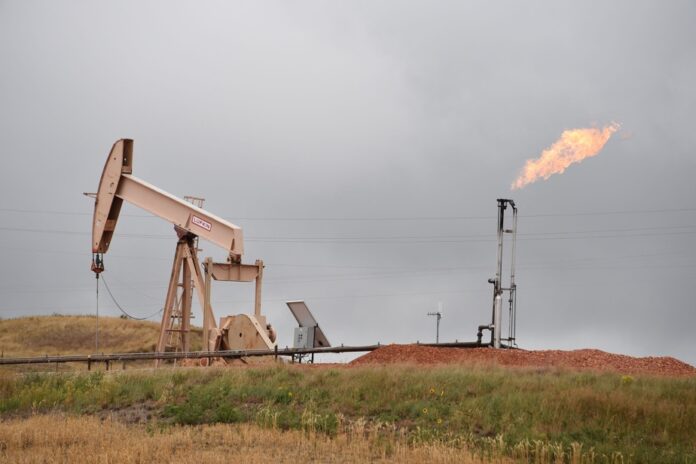(LONDON) Oil prices continued to fall on Friday as high global interest rates reignited concerns about global economic activity and weighed on demand prospects.
Around 5:30 a.m. (Eastern time), a barrel of Brent from the North Sea, for delivery in August, lost 1.73% to 72.86 dollars.
Its American equivalent, a barrel of West Texas Intermediate (WTI) for delivery the same month, dropped 1.90% to 68.19 dollars.
Oil lost ground over the week, “Major central banks have been aggressive in tackling inflation,” said Exinity analyst Han Tan.
“Bigger-than-expected rate hikes in the UK and Norway, coupled with the US Federal Reserve’s insistence that it has more rate hikes in store, have markets fearing a recession.” world,” he continues.
On Thursday, the Bank of England raised rates by 0.5 points on Thursday, bringing them to 5%. The Bank of Norway also opted for a 0.5 point hike, pushing its key rate to 3.75%.
The Swiss National Bank, meanwhile, raised its policy rate by 0.25 points to 1.75%. Finally, the Turkish central bank pushed its main interest rate to 15% on Thursday, a major reversal in its monetary policy.
“[High] interest rates pose a huge risk to the economic outlook and inflation is proving much more persistent than expected,” Oanda’s Craig Erlam told AFP.
Especially since the analyst recalls that many economists expected rate cuts to occur during the second half of the year. “We always ask where the peak [in rates] is and how long it’s going to hold,” he points out.
Meanwhile, on the supply side, “available data regarding (Russian) oil exports by sea and the processing of crude oil in the domestic market have not shown a noticeable decline so far,” notes Carsten Fritsh, analyst at Commerzbank.
Russia had however committed in February to reduce its production by some 500,000 barrels per day.
In a statement released last week, the Organization of the Petroleum Exporting Countries (OPEC) gave Russia a slightly higher baseline for 2024 production cuts, from 9,828 million barrels per day to 9,949. .
“If Russia were to continue to produce more oil than agreed, Saudi Arabia’s willingness to continue its voluntary production cuts could diminish,” Carsten Fritsh said, noting that it could also “jeopardize the cartel’s credibility.” expanded tanker”.





